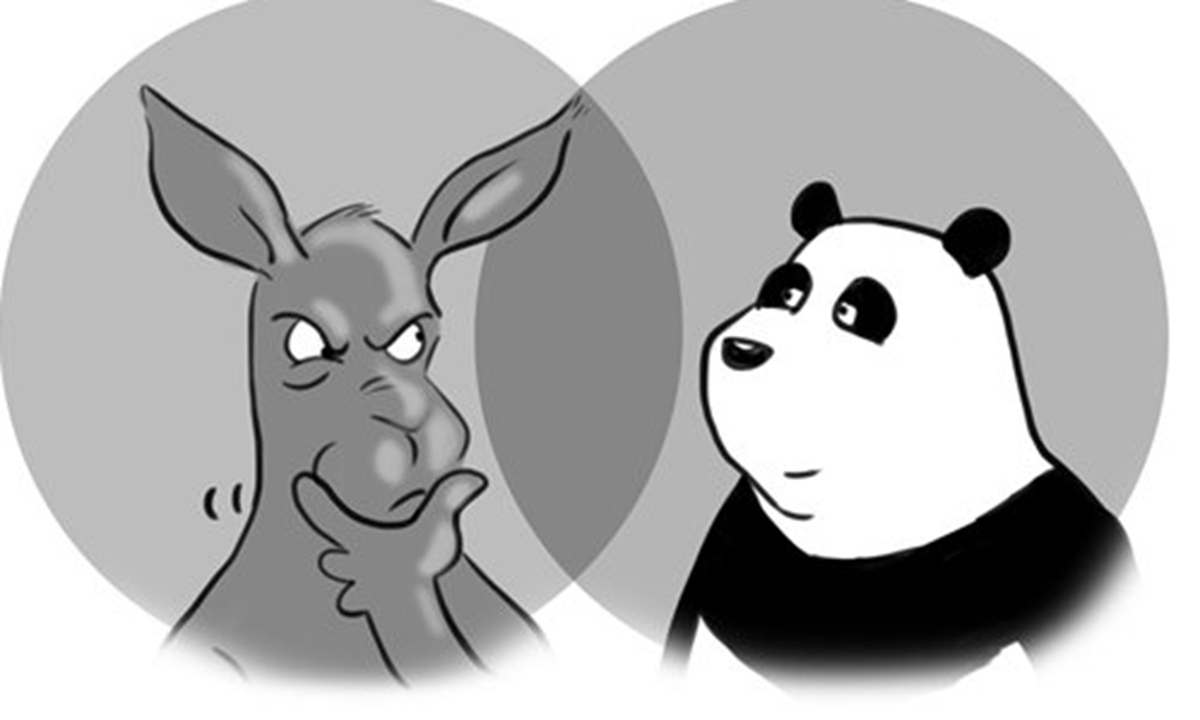Hurting ties with China will have consequences Australia cannot afford to bear
By Wang Wenwen Source: Global Times Published: 2020/9/1 1:33:26

China Australia Illustration: Liu Rui/GT
The government of Australian Prime Minister Scott Morrison will introduce legislation this week empowering the foreign affairs minister to review and cancel agreements between local governments and universities and foreign countries considered "detrimental" to Australia's foreign policy objectives. China, is the implicit target.
Group of Eight universities have blasted the plan. Top representatives of the sector also warned that Australia would be "in really serious trouble" without international partnerships, and believe their scientists have been vilified for working with Chinese counterparts.
This is Australia, which keeps resorting to the excuse of "national security" to jeopardize cooperation with China, be it technological, economic, or scientific. Whenever it comes to China, Australia behaves like a nervously alerted bird which tries to find a way out, but ends up facing a dead end.
In terms of scientific collaboration, the Australia-China Relations Institute of the University of Technology Sydney published a paper in July, which found that China has overtaken the US as Australia's leading research partner, and more Australian-led scientific publications involve researchers from China than any other country.
If the China-led mining boom has fueled Australia's economic growth in the past decade, the "knowledge boom," as the Financial Times called it, would contribute to the country's scientific development vital to helping Australia establish itself on the world stage. That is why the newly proposed legislation against scientific collaboration with China has triggered a backlash from this sector.
Some Australian scholars have blamed China for the frosty relations between the two countries, saying Beijing has been openly hostile toward Canberra. But from Australia's ban on Huawei, the unwarranted allegation of Chinese influence, and cybersecurity concerns, the politicization of an investigation into the origin of the COVID-19 pandemic to hype the international probe and attack on China, and the latest legislation to scrutinize agreements with a foreign government, these events prove that Canberra is the hostile one.
"National security" has been abused by countries which adopt a protectionist and xenophobic stance. The US is the master of using this excuse, and Australia is the closest follower of the US in terms of restricting Chinese investment and academic exchanges. Australia is giving up the opportunity to think and act independently, but attaches itself to the US anti-China chariot with alarmist rhetoric.
Australia's fundamental mistake is that it does not have a correct understanding of China, and takes the wrong approach to deal with China. It is doing the Trump administration's bidding, leaving itself no room to strike a balance between China and the US, as what other countries do. It finds fault with China on almost all fronts where it cannot live without China, trapping itself in an embarrassing dilemma.
In the past decade, China has been Australia's largest trading partner, and this market is difficult to replace. If Australia views this close economic relationship as well as China-Australia collaboration in other sectors such as science as a burden rather than an opportunity, it will face far-reaching consequences it cannot bear. When that happens, the US won't come to its rescue.
Posted in: OBSERVER,OTHER REGIONS